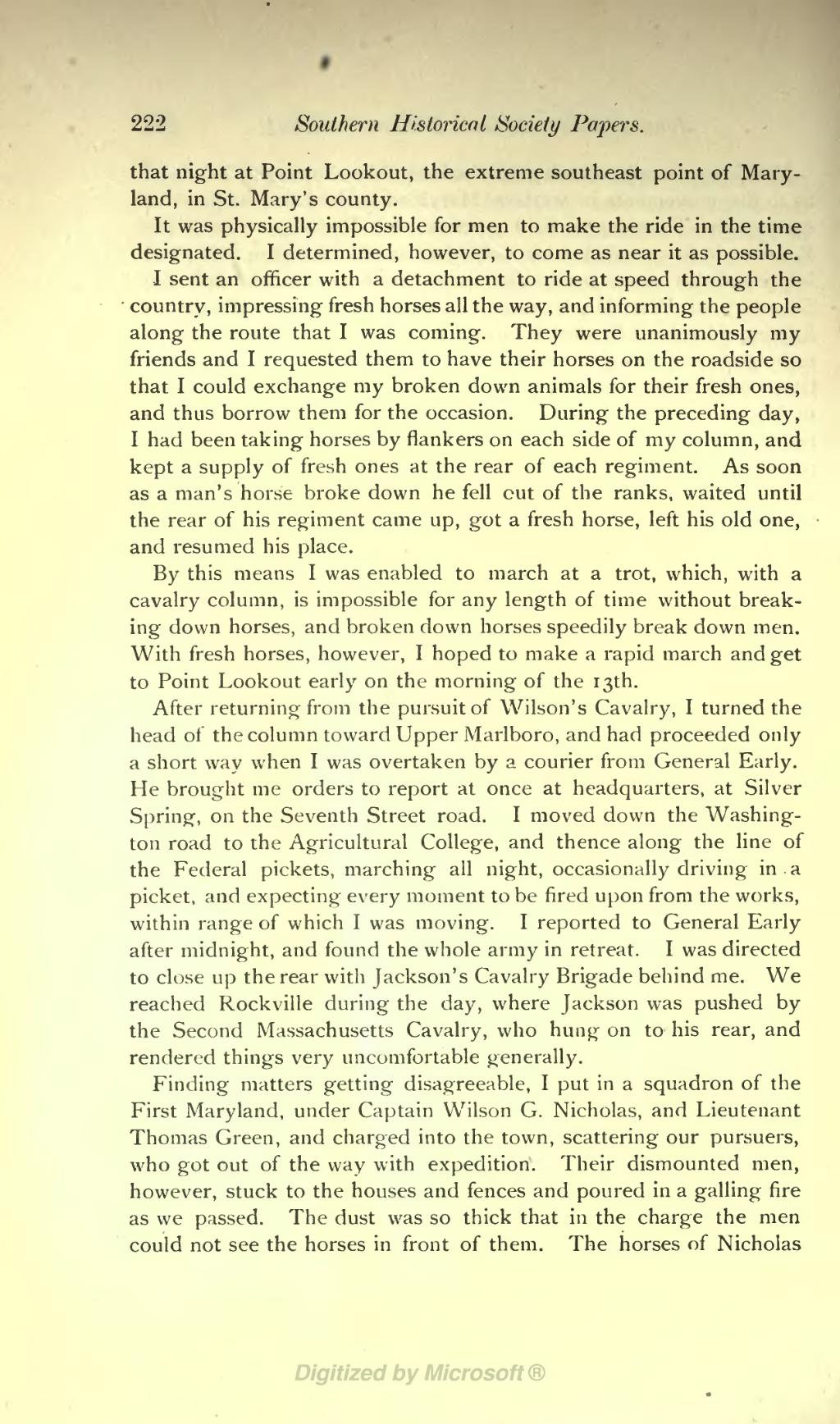222 Southern Historical Society Papers.
that night at Point Lookout, the extreme southeast point of Mary- land, in St. Mary's county.
It was physically impossible for men to make the ride in the time designated. I determined, however, to come as near it as possible.
I sent an officer with a detachment to ride at speed through the country, impressing fresh horses all the way, and informing the people along the route that I was coming. They were unanimously my friends and I requested them to have their horses on the roadside so that I could exchange my broken down animals for their fresh ones, and thus borrow them for the occasion. During the preceding day, I had been taking horses by flankers on each side of my column, and kept a supply of fresh ones at the rear of each regiment. As soon as a man's horse broke down he fell cut of the ranks, waited until the rear of his regiment came up, got a fresh horse, left his old one, and resumed his place.
By this means I was enabled to march at a trot, which, with a cavalry column, is impossible for any length of time without break- ing down horses, and broken down horses speedily break down men. With fresh horses, however, I hoped to make a rapid march and get to Point Lookout early on the morning of the I3th.
After returning from the pursuit of Wilson's Cavalry, I turned the head of the column toward Upper Marlboro, and had proceeded only a short way when I was overtaken by a courier from General Early. He brought me orders to report at once at headquarters, at Silver Spring, on the Seventh Street road. I moved down the Washing- ton road to the Agricultural College, and thence along the line of the Federal pickets, marching all night, occasionally driving in. a picket, and expecting every moment to be fired upon from the works, within range of which I was moving. I reported to General Early after midnight, and found the whole army in retreat. I was directed to close up the rear with Jackson's Cavalry Brigade behind me. We reached Rockville during the day, where Jackson was pushed by the Second Massachusetts Cavalry, who hung on to- his rear, and rendered things very uncomfortable generally.
Finding matters getting disagreeable, I put in a squadron of the First Maryland, under Captain Wilson G. Nicholas, and Lieutenant Thomas Green, and charged into the town, scattering our pursuers, who got out of the way with expedition. Their dismounted men, however, stuck to the houses and fences and poured in a galling fire as we passed. The dust was so thick that in the charge the men could not see the horses in front of them. The horses of Nicholas
